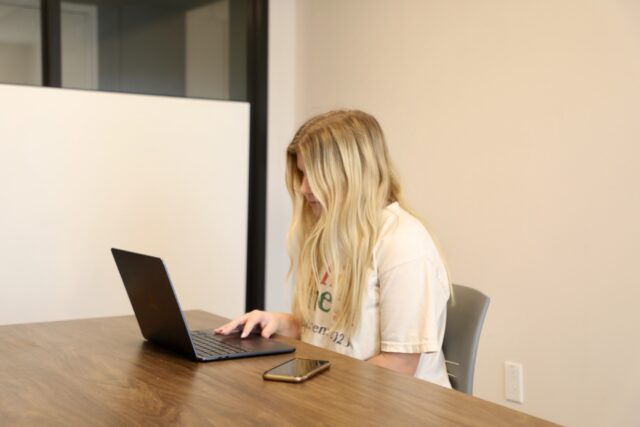By Rory Dulock | Staff Writer
The university’s Faith and Character Study has been measuring the value and impact of a Baylor education for the last couple of years, tracking students’ progress when they arrive at Baylor, when they graduate from Baylor and a decade later. This year, there is a new incentive for seniors to participate as well.
Dr. Perry Glanzer, professor of educational foundations, said the study was created following the realization that there was no empirical evidence for Baylor in the areas of faith and character. Glanzer said that he, Dr. Sarah Schnitker, Dr. Kevin Dougherty and Dr. Burt Burleson are the key members of the research team.
“[The main purpose of the research] is really to find out, how does Baylor influence students in regard to character and religion when you look at four things in particular — their identity, their beliefs, their behaviors and sense of belonging,” Glanzer said.
Schnitker, associate professor of psychology and neuroscience, said she learned the Board of Regents had commissioned the study when she first joined the Baylor faculty in 2018. After looking at the data over time, she said the university has been able to start improving the Baylor experience.
“It’s been pretty cool that Baylor actually looks at the data and changes things in response and looks at what we might do to do a better job for our students,” Schnitker said. “When we began the study, it was coming out that the Chapel experience at that time was not positively experienced by a lot of students. It was because of the survey results, … they hired additional chaplains and created all of these individualized kind of options to really meet students where they’re at, and that’s been a great success.”
Schnitker said the survey includes a variety of questions related to spiritual activity.
“We also ask not just what they do, but why they do it and how they feel about it,” Schnitker said. “We have a measure, for example, faith maturity that looks at horizontal, kind of person-to-person spiritual interactions and also with God a vertical faith maturity.”
On the character side, Schnitker said the survey focuses on numerous virtues or strengths.
“[We look at things] like altruism, kindness, generosity, patience, honesty — things like that that really matter not only during your time at Baylor, but who you are as you go out into the world,” Schnitker said.
In addition to quantitative surveys, Schnitker said students are selected to come in for qualitative interviews.
“[Students are] interviewed about their purpose, what they do on campus, who they are, their faith, their character development,” Schnitker said. “It’s really exciting to be able to have both quantitative data for a large group of students as well as a deeper dive into hearing the stories of particular students.”
Dougherty, professor of sociology, said the surveys and the interviews “take a sweep” of what Baylor does and the impact it has on students.
“With our [student] interviews, we are able to have students narrate for themselves what was it about [their] Baylor experience that impacted [them], … tell us how they’re different now than when they arrived on campus four years ago,” Dougherty said.
In order to have the best possible measures, Dougherty said the research team invites many scholars at Baylor to contribute to the project.
“We developed the instrument, and each year as we have used the instrument, we have gone back to see if these questions that we’re asking, … are they adequate, or should we look at new questions?” Dougherty said. “So we’re continually evaluating what we are doing.”
Glanzer said he has been inspired by hearing from students throughout the course of the study.
“[Students] tell stories about the wonderful things they’re doing, how their character has grown, how they transformed differently, developed intellectual humility, all kinds of things,” Glanzer said. “I would say the greatest thing about it is you hear the inspiring stories about these students and how their lives have changed in remarkable ways.”
Dougherty said the survey participation rate for seniors and alumni is very low, and the research team is hoping to see a higher participation rate this year.
“This year, in order to make the senior survey more attractive, we’re giving every student that participates a license plate frame that they can put on their car that shows that they are a proud Baylor alum,” Dougherty said. “So we’re hoping to increase our response rate for surveys by offering that token of our appreciation for their participation.”
Schnitker said she hopes every senior will take the survey because it helps Baylor determine what can be better for the next generation of students.
“I think the Baylor Faith and Character Survey is a really cool project because it brings together all of Baylor’s missional commitments,” Schnitker said. “We are all about transformative undergraduate education that leads to character development and spiritual development. This helps with that, but it also helps tie in with our R1 mission. … This is excellent research, and it’s showing that research matters for practice and that our research endeavors at this institution are intertwined with our other types of educational commitments.”



